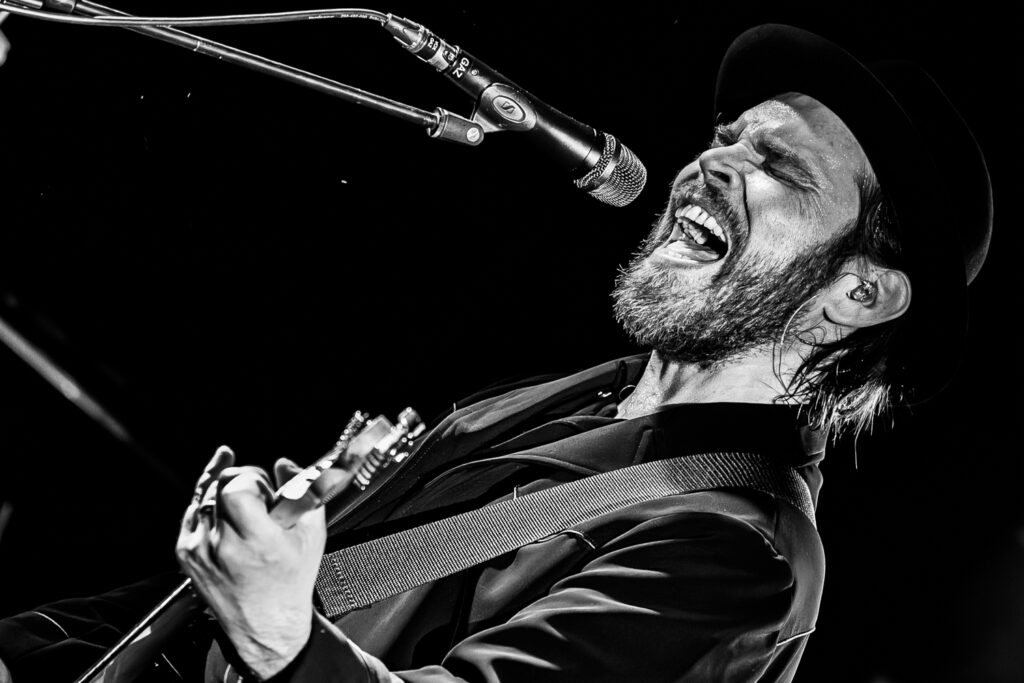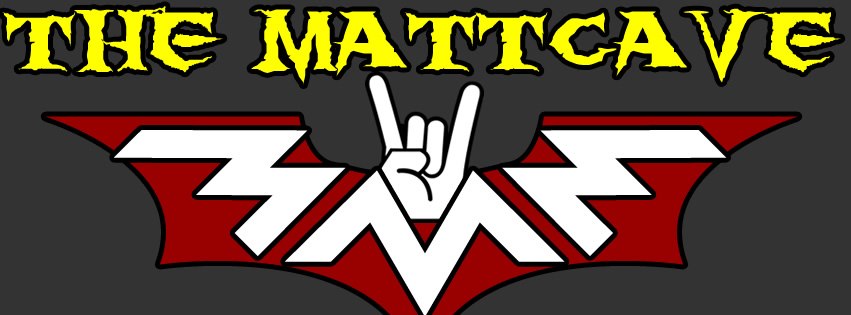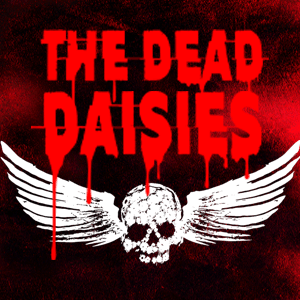Tunes from the Shing Mun River
Written by Tony Wilson on December 7, 2020
Tunes from the Shing Mun River – by David Grove
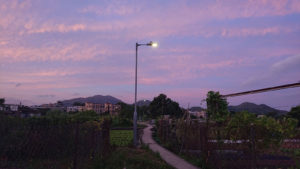
Credit: Teruki Chan
For this review, we will go all the way to Hong Kong, aptly known as one of the Asian “Tiger Cities”. Away from the hustle of the streets of Wan Chai or the neon-lit streets of Kowloon, lies a quiet district of Hong Kong known as the New Territories. In this district, you will find many villages and in a little village in the Sheng Shui district, you will find Hong Kong’s newest upcoming artist: Teruki Chan. Back when I met him in early 2019, I could not stop hearing or seeing him pounding on a set of drums, slapping a funky bass riff or twanging away on a guitar. A fascinating young man with an insane love and dedication to his craft that I have not seen in a person before.
This month, he released his debut EP: Shing Mun River. An insight into his single-minded, unedited vision that he recorded between May and October of 2020. I will be saying my piece on each track and later we will get to hear from the man himself later on!
Kalimba
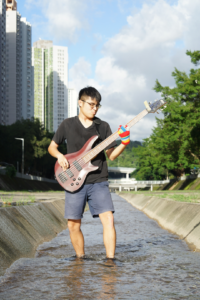
Credit: Jaison Lin
Kicking it off with a Kalimba just like the song title suggests, we get a pleasant insight as to what this EPhas in store for us. Using unconventional instrumentation which is an aspect of what progressive rock is known for. But after the intro, it seems to take an indie rock turn similar to Cap’n Jazz with the instrumentation, but without the convoluted vocal style. Having said that, I would hesitate to call this ‘Emo’ or ‘Post-hardcore’. The track has well composed layering of each instrument and trickles in nice bass fills that do not consist of just plain root notes. Use of saxophone resembles elements of math rock and ska undertones. Overall, a nice introduction of what is to come.
Shing Mun River Song I
The track reminds me of a song in a soundtrack to an establishing sequence to a film set in Paris – with a hint of Spanish flair due to the flamenco style of guitar, but without the accordion. Another element that sets this track apart is the addition of the reverb of the electric guitar in the background that adds another layer of charm to the beginning section. It is also the first track to feature the violin and it really adds a romantic element to this vibe. Exceptionally low energy beat track – maybe the kind of music you’d hear sitting beside – dare I say, a river? To me, it’s a nice feel-good track that contrasts the bulk of the more fast and aggressive pieces on this E.P. However, I would say that it is probably the weakest track of the E.P. as it sounds too familiar. Something I have already heard a bunch of times from films like Chocolat or Ratatouille.
Regicide
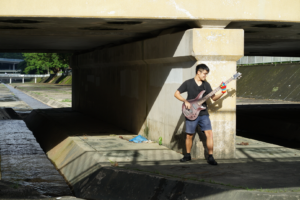
Credit: Jaison Lin
Only song in the EP that features vocals and in the fast-paced style of rap resembling Logic. From what can be made out from the lyrics it seems to be about an individual who seems to suffer from a superiority complex, referring to himself in the first person as a “king” that needs to kill his own ego. The duality of self-grandeur and self-awareness is a complex self-portrait of the lyricist. However, I cannot help but feel like the song is slightly let down due to the fact that the complex instrumental arrangement and the rapping are at odds with each other – both trying to dominate the song and that requires the listener to take a step back to interpret the lyrics and comprehend the musical arrangement. The musical arrangement itself takes on a very aggressive nature that almost bombards the listener with an almost collage-like sound of carefully layered, complex, fluctuating time arrangements, only for it to drift off into a mellow trance like state of bereavement from the chaos of the earlier section of the track. I would liken this change in atmosphere to a palette cleanser for the next track which begins with an aggressive intro.
Shing Mun River Song II
Back into that stylistically math rock instrumentation with the stylistically jazzy arrangement heard in Kalimba. However, this track places more emphasis on heavier guitar hooks to draw the listener in and later mellows into riffs that are reminiscent of bedroom indie that one would associate with Mac Demarco. The most surprising element of this track was the use of cello around the 2 and a half minute point of the song, a nice change of pace from the heavily saturated implementation of brass instruments that are usually associated with the genre. However, I feel that the cello sequence was criminally short, and I would have liked to have heard more as I feel it ended too abruptly.
Banyan Bridge/ Twin Bridge
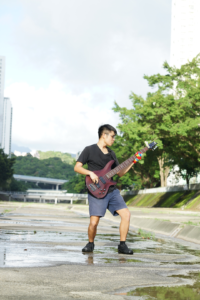
Credit: Jaison Lin
Bass is clearly the driving force in this track, and this is where I feel that the rhythm section of the EP thrives the most. The first band that comes to mind at the beginning of the song bears a striking resemblance to Elephant Gym, one of the premier Asian math rock bands that feature complex; rhythmic; feel good arrangements with a peppering of light, minimal guitar riffs that would surely keep a listener’s heart rate at below average bpm. But around the minute at ten second mark, the song starts to pick up and sends the listener back into an upright position, raising the listeners heart rate back up. Strangely, the song later morphs into a Latin-style festival vibe one would associate with the Caribbean. In fact, one performer that comes to mind is Daniel Indart, the Argentine, award-winning composer of the Tropico games. I cannot help but feel that the inclusion of this arrangement is somewhat out of place in what a listener would associate in math rock, and some listeners would feel like this song is having a mild identity crisis. To add to that, it again morphs into some quasi-medieval jig with the inclusion of a tin whistle. But you know what? I don’t hate it at all. I think the way one sequence segues into another is implemented beautifully and not just thrown in there to spice things up. I think what Teruki was going for was to keep the listener on their toes using unorthodox styles of arrangement and I think he executed this very well. Definitely my personal favourite on this EP
Overall, there is truly little to be disliked about this debut. I feel that Teruki has given us a refreshing insight to his world and his influences. A very promising debut and I am extremely excited to see what he will do in the future – whether it be another solo pursuit, or not.
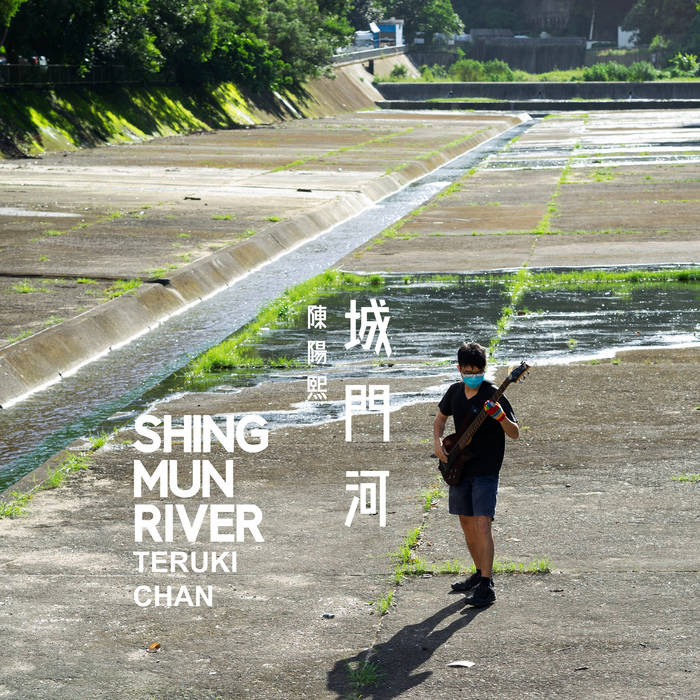
You can buy his EP on his BandCamp at: https://teruki-chan.bandcamp.com/releases
All other social media links will be given at the bottom of the article itself.
Now, we hear a few words from the man himself!
So Teruki, just to get an idea of your musical background, what led you to become a multi-instrumentalist and how did you learn to produce your own tracks?
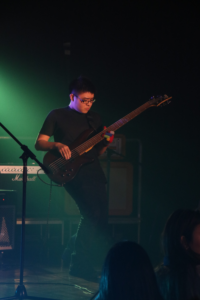
Credit: Shambhvi Sachar
The reason why I play all these different instruments is because it was originally out of necessity. Back then when I was like – 12 I could only play the drums, but I really liked music and I wanted to write my own songs and play my own songs and be in a band all that. But my friends couldn’t play guitar or bass – or any of that so I had to just learn it all by myself. If I couldn’t find my own band, I might as well become my own band and that’s how I got to play all these different instruments. I think it was around probably four years ago when I got my first microphone and that changed everything for me, because I always had these loose ideas in my head for songs and riffs that I wrote. But then when I got a mic, that’s when I could actually record them and piece them together into one coherent song and so – you know it’s just kind of a gradual process. I didn’t really learn it from anywhere I just kinda messed around with audacity a lot.
So, I guess in a way you could compare yourself to Burzum or even other black metal like Striborg or Xasthur. Or in your case, maybe more like Mac Demarco. Would you agree with that statement?
Was it out of necessity for them? I don’t know because I’m not very sure about their background but with Burzum, I definitely see some parallels. I mean Varg recorded a lot of different instruments for his albums, but as far as I know he wasn’t the best at all of them for example, drums. I think he’d say himself that he’s not good at the drums and he would only use it in his albums. He never played live as well so yeah, it’s kind of similar for me, I guess. Because everything aside from guitar, bass and drums. I’m not really good at the saxophone – I could never play what I played on the album live. So, I think I can see some similarities. Maybe that’s why he never played live as well.
In that case, do you not see yourself playing live as well – like your other band The Funk Division?
I don’t really have any plans to play live shows, but I guess that depends on the instrument as well. If I’m on the drums, I’d say I’ll be able to pull it off with a bit of practise, but guitar and bass especially is so difficult. It will take me a lot of practise to be show ready. All the other instruments like saxophone? well I can’t do it. (chuckles)
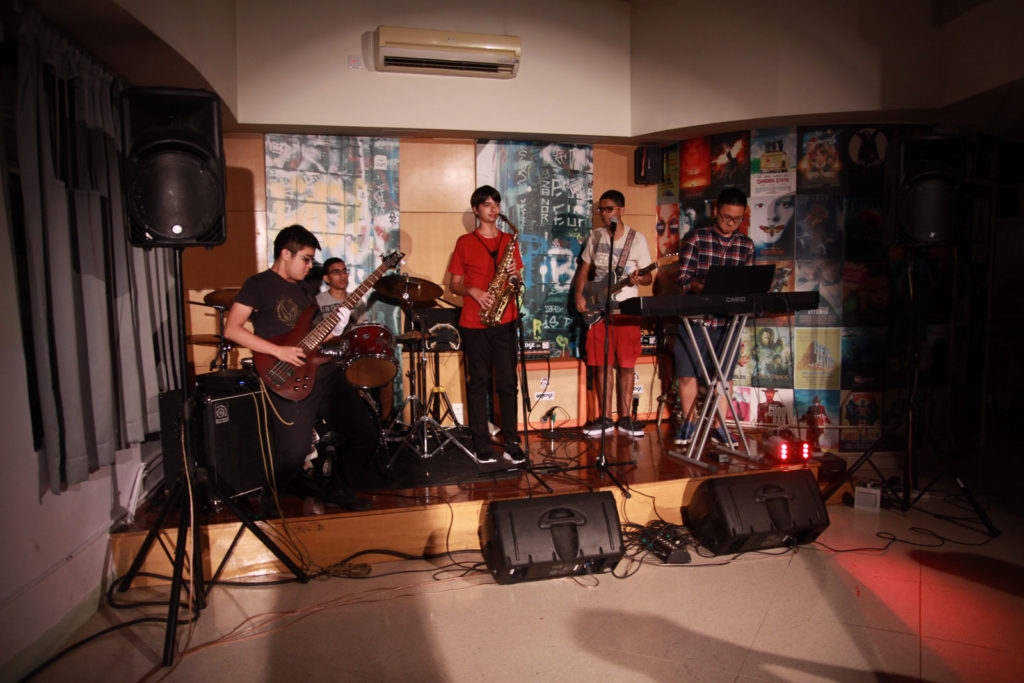
Credit: Unknown
That’s fair enough and I guess you would have a hard time with finding the session people if you wanted to. Anyway, moving on, what is the significance of the Shing Mun River to this EP?
So, the Shing Mun River is in the Sha Tin district of Hong Kong, I’d say is probably the most famous river in Hong Kong. But despite that, it’s kind of just a boring, old river that doesn’t have much of a history behind it – it’s just kind of there, but it is that humility that really is really charming about the river, you know? It really represents your typical residential area in Hong Kong and for me it really reminds me of home, and that’s what I wanted to convey with this album; I wanted to create a strong linkage between my music and my home. I wanted my music to really be representative of local music in Hong Kong, or at least I wanted to really contribute to the local scene in Hong Kong. But actually, that was just originally the working title for the EP, but that was the reason why I went ahead with using this as the final title. But the reason why I use this as a working title is because the first 2 songs that I wrote for this album was Shing Mun River Song I and II – just went ahead with that.
I see. So that kind of begs the question, how come the Shing Mun River songs weren’t the first 2 tracks on the album? If I’m correct it’s Kalimba, right?
What I meant was that these were the two first 2 songs that I wrote for this album. Because I wrote these two songs way before I even had the idea for this album. Like Shing Mun River Song I, I actually wrote for a music assignment back in 2019 or even 2018, I don’t remember. But Shing Mun River Song II, I actually wrote this to submit to the I.B. (International Baccalaureate) because I used to take music for the I.B., and so that was written around 2019, and what I did for this album was I just re-recorded these two songs to fit the style of the album. But yeah, these two songs are ancient, man.
So, this EP has a huge variety in its scope of genres like math rock and prog rock. So were you trying to find your own musical footing with recording this EP or have you always known that this is the kind of music that you wanted to make and will continue to make?
This whole EP is actually kind of a throwback to when I have my math rock phase around 2015 or 2016. That was when I discovered math rock through bands like Chon and Toe – and I just really wanted to make a math rock album. I actually came up with a lot of riffs that I would later on recycle for this album – a lot of these melodies from this album are taken from some of the phone recordings that I made back in those days because I didn’t even have a microphone back then. So yeah, I had this idea for a very long time. But it’s only now that I have that, I have the time and the equipment to actually make an album. So yeah, this is actually a long overdue album, I might say. But as for the next album and all the albums to come – I don’t know. I think I’ll probably use math rock more as a device – not really as a genre that I want to label myself as. Like I’m already writing a few songs for my next album and I find that there’s not a lot of elements of math- or like there are some elements of math rock, but it’s not a genre that defines my music. So yeah, I’d say I’m going to diversify my sound even more in the future.
Yeah, I did notice that there are quite diverse sounds and I kind of got the sense that there was a little bit of Latin influence there in a couple of songs with the flamenco guitar. Was that intentional?
Yeah, I think you’re talking about the song Banyan Twin Bridge – in the middle section of that song. I’d say originally (the) Latin feel was unintentional? I just wanted to create this section that bridges the first part and the second part of the song, with the metric modulation and changing feel – like from using an electric guitar to a classical guitar and so to create that different kind of feel, I added some claps initially – and because there was already a classical guitar track as well, I just thought ‘You know what? Let me just make it a full on Spanish thing.’ and so I just made it even more Spanish – adding in a lot of really Spanish sounding chords and all that, and when I recorded drums and percussion for this, it kind of gradually shifted from a Spanish sound to more of a Latin sound with a Latin drum beat, with all the bongos and congas and all that. So yeah, it was unintentional at first but then I just went with it because it’s a nice little touch as well.
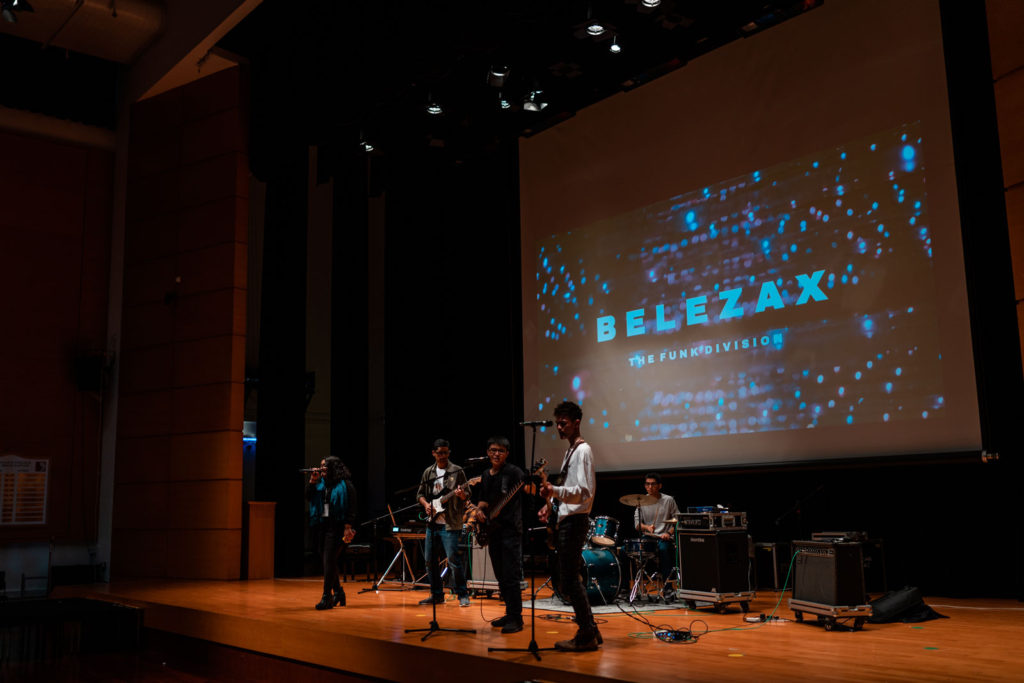
Credit: Jeffrey Or
So far, your work has included a great deal of different instruments that not many people are accustomed to. So, are there any new instruments that you plan to add to your repertoire?
(Enthusiastically) Gonna be a lot of instruments for this one! I mean, I’m only three songs in and already using a lot of new instruments. I use way more saxophone and tin whistle than the last album. It’s going to become a staple of my music, I think. I mean, I’m only three songs in so I don’t think these songs speak for the entire album, but so far it’s pretty orchestral – with a lot of layers of saxophone and whistles. But, I also got a few new instruments for this album. I got a harmonica, ukulele and I fished out an acoustic guitar from the trash, so there’s a lot there’s a lot of bad as well and maybe some other surprise instruments in there as well yeah I guess I guess we’ll just have to have to see but definitely; definitely new instruments.
So, we know that you’re already working on your new album, do you know when we can expect to see it come out?
Well I can’t really say for now because I’m only three songs and I plan on making this a full length album as well so that’ll be a first, so I don’t really know what to expect or how long it’s going to take, but I’d say within this year hopefully so yeah.
I see, we will look forward to that! So as far as we can tell, your music is mostly instrumental with the exception of Regicide which features the lyrics and vocals of your friend Hemant Bharnawey. How did that come about and how come you decided to feature his voice on the EP?
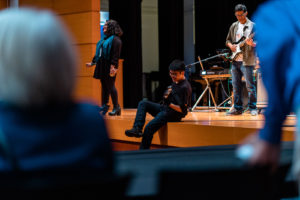
Credit: Jeffrey Or
I’ve always been fascinated by the idea of combining hip hop with math rock. I found this channel a long time ago called Khaos Light, and he’s a rapper who raps over math rock music and some prog metal as well. and it just sounded so good, but you don’t see that a lot in math rock – when you think of math rock with vocals, it’s usually some kind of mid-western emo and so I wanted to experiment with that. I think I just saw a lot of potential in that genre, but the song turned out being way less math rock and more metal in the end. But you know, I always wanted to experiment with hip hop in general anyway. So, you know it was a win-win in the end.
So as a result of that song, will you feature more vocals in your future work and is it likely we will hear your own voice and lyrics, or will it be future collaborations with Hemant?
Oh yeah, absolutely! I already recorded the song with my vocals on it. The lyrics are actually written by my friend because I never write lyrics. But aside from that and Hemant in particular – no promises yet but, I have some ideas so you might see him again on my next album. I’m also looking to experiment with Cantonese lyrics as well, I think it’s a pretty cool language that will be fun to experiment with. But again, no promises so far, we will just have to see.
So since you’re using Cantonese lyrics within your next album, would you say that the Hong Kong audience would be your target demographic?
In a certain sense, I’d say it’s going to be more locally oriented because I want to have a good balance of Cantonese and English lyrics for this album. But ideally, I also want to break that local barrier as well. Because I also really like the idea of people from overseas listening to my music just for the sake of the music, you know? Even though they might not understand the lyrics- kind of like how a lot of indie bands from Japan attract a lot of western listeners and hopefully that’s going to be the case as well. But yeah, for now I do want to appeal more to the local audience.
I see, and you actually have Japanese ancestry yourself! Is there a chance that you will try to break into the Japanese market?
Aha, great question! Because I’ve actually been listening to a lot of Japanese music and have taken inspiration from a lot of Japanese and for this next album. So yeah, sonically I think it’s going to you’re going to hear some Japanese influence there. But as far as getting into the Japanese market is concerned, I definitely plan on doing that sometime in the future. I don’t know if it will be for this album, because I don’t have any plans in writing a Japanese song. I don’t know any Japanese lyricists – but yes, I’ll definitely be taking some small steps towards trying to find a Japanese audience.
Well, I wish you the best of luck on that front! So, from what we’ve discussed in earlier, you’re already working on your new album. But I also know that before the pandemic, you planned to study in the UK this year. So, my question is how many more releases are you aiming for until your first term of uni in September 2021?
Depends on how long this album is going to take to create. But yeah, right now I’m just focusing all my efforts into just one project; one album. But I mean – I have some vague ideas for other stuff, so there could be some surprise releases here and there. But for now, just expect this one album from this year.
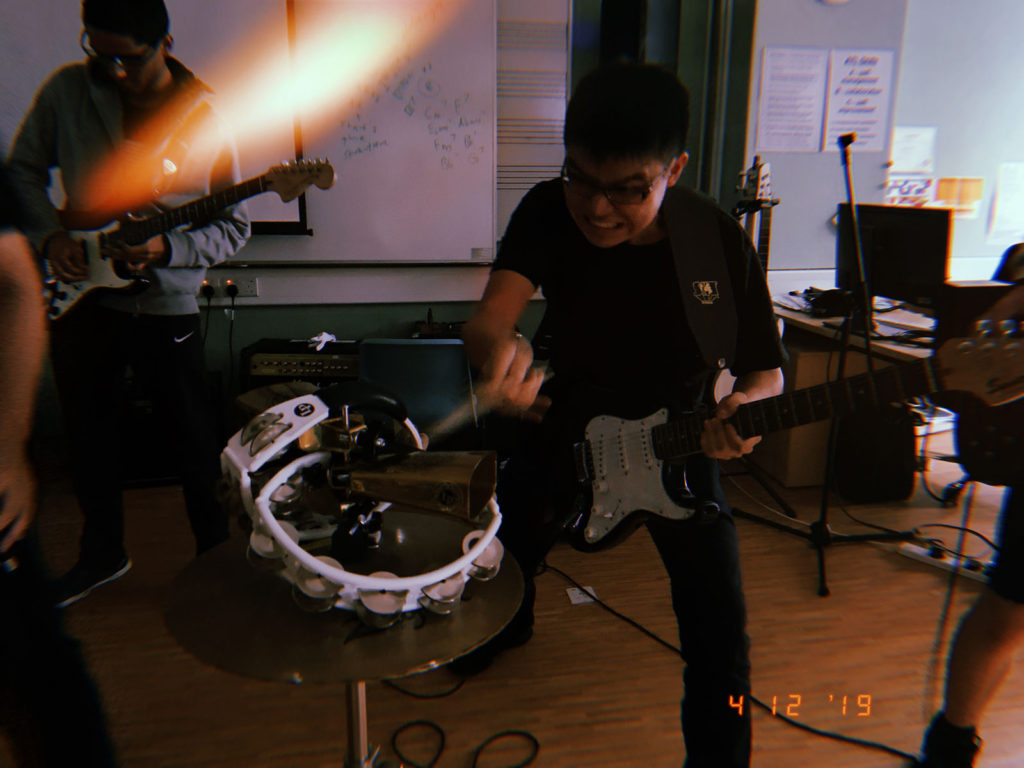
Credit: Maisha Maryam
Good stuff! Now you know that artists are well known for being self-critical and hating their own work. Would you say that this has been the case for you, or are you pretty much happy with how the EP turned out?
Nah, I wouldn’t say it to the extent that I hate the music, but towards the end of the making of this album around a few weeks leading up to the release, I’ve definitely grown a little bit tired of the songs. It just sounded less cool than when I first made them. It was mostly because I was more excited for what’s to come. I was already writing some new stuff for my new album. Also, on a side note, to prevent myself from hating my own music, what I do is I “ferment” a lot of my musical ideas. I just write something, and I’ll just store it away on my computer, and a few months later, I will revisit and then use those ideas again. It’s like fermentation because it improves with age as you get to listen to it with fresh ears and with that approach, I find that I’m consistently able to like my own ideas and not get sick of it. That’s also the reason why for the Shing Mun River EP, a lot of the ideas are actually recycled or like taken from way before 2016 as I mentioned. It just sounds way cooler when they come out of fermentation.
Well! That’s a pretty good segue into your musical past with the Funk Division. You told me that it is strictly a live band, but has being in that band directly influenced you to compose and release your music?
In some ways, yeah. I think it’s less about the band and more about the friends I make along the way. Because it’s just really great to have a bunch of really musically like-minded friends. Like, let’s say I have a new idea or I’m stuck on an idea – I can always just send it over to my friends and they have some good feedback, or even just give me a little bit of a confidence boost, and you know that really goes a long way and so it’s just great to have a bunch of really supportive and like-minded friends. Aside from that as well, joining a funk band, I learned a lot about funk music. I find myself writing more and more funky songs. So again, more hints for the next album. Yeah, it’s been a great experience overall in terms of even when it comes to the influence it had on my solo project and with the funk division, we also collaborate with a lot of people from our school, or even outside of school. So, I’m able to greatly expand my network through joining this band. For example, Lofton – the guy that played the drum solo in Shing Mun River Song II, he plays drums in the band and Jake – he plays guitar Jake O’Hanlon who played a synth solo in the last song as well – he is the guitarist of our band. So, a lot of these connections have been made through the band, so that’s been very helpful as well. Back to the whole Burzum thing as well, it is a solo project, but I don’t think that Burzum would be where it is now had Varg not helped out with the other bands and not mingled with him in the scene.
Alright, so I think we’re going to come to the most important question of all! Why should people care about you, Teruki? Why should people care about your music?
(Laughs) Did you get that from Nardwaur? I mean, well nobody really has to care about my music. If you do and if you find anything cool in my music, I sure do hope that you stick around.
Is that from Nardwuar? I didn’t realise! So, with that, I think we can end the interview – unless there’s anyone that you want to shout out, or if there’s anyone that likes your music, who should they go listen to? Any other bands that you think are similar to your music? Now is the time to tell the world!
No worries, man. I love Nardwuar, so it’s fine. But yes, shout outs; massive shout out to all my featured artists! They’ve done a phenomenal job, so mad props of them – massive thanks to them! As for the recommendations, I think this album was influenced by basically all the big names in math rock. You probably already know them, you’ve got your Chons and your Toes, and your Yvette Young and all that. But I think one lesser known artist that I’ve been influenced by massively is actually this band called The Most. They have this album called At Once and it’s this really unique combination of jazz, jazz fusion and math rock – they have a lot of like elements of bebop even. It’s really cool, I think it’s a very unique band in the world of math rock, so definitely check them out as well. So, thanks for having me, man! It’s good to talk to you again!
If you want to check his music out, here is the link to his BandCamp: https://teruki-chan.bandcamp.com/album/ep-shing-mun-river-ep
Author: David Grove
Shing Mun River E.P. is also available on Spotify and Amazon Music.
You can find him on Instagram: @teriyaki.sukiyaki
Also, check out his band on Instagram: @thefunkdiv
You can find the author on Twitter: @DavidGGrove1
Special thanks to Emika Suzuki for making this interview possible
Read other TotalRock Features here








